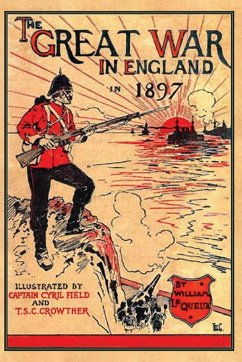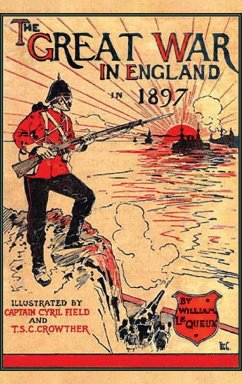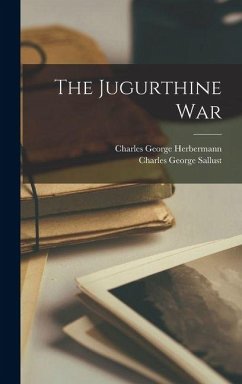
The Invasion of 1910
Versandkostenfrei!
Versandfertig in 1-2 Wochen
24,99 €
inkl. MwSt.
Weitere Ausgaben:

PAYBACK Punkte
12 °P sammeln!
The Invasion of 1910 (1906) is a novel by Anglo-French writer William Le Queux. Published at the height of Le Queux's career as a leading author of popular thrillers, The Invasion of 1910 is a story of espionage, resistance, and international conflict. Using his own research and experience as a journalist and adventurer, Le Queux crafts an accessible, entertaining world for readers in search of a literary escape. Known for his works of fiction and nonfiction on the possibility of Germany invading Britain-a paranoia common in the early twentieth century-William Le Queux also wrote dozens of thr...
The Invasion of 1910 (1906) is a novel by Anglo-French writer William Le Queux. Published at the height of Le Queux's career as a leading author of popular thrillers, The Invasion of 1910 is a story of espionage, resistance, and international conflict. Using his own research and experience as a journalist and adventurer, Le Queux crafts an accessible, entertaining world for readers in search of a literary escape. Known for his works of fiction and nonfiction on the possibility of Germany invading Britain-a paranoia common in the early twentieth century-William Le Queux also wrote dozens of thrillers and adventure novels for a dedicated public audience. Although critical acclaim eluded him, popular success made him one of England's bestselling writers. In The Invasion of 1910, a large German occupying force lands undetected on the coast of England. After quickly defeating a hastily assembled British defense in a battle at Royston, German forces turn toward London, eventually gaining control of half of the city. Woefully unprepared, terribly overwhelmed, a small group of English politicians gathers to form a resistance force capable of conducting guerrilla style attacks on the well trained, heavily armed Germans. As the light of hope returns to a beleaguered nation, a new British Army gathers strength in order to cast the invaders out for good. Originally published in the Daily Mail, Le Queux's novel was both popular and controversial for its use of newspapermen dressed in German military uniforms to drum up sales. Despite being rejected as alarmist in its time, The Invasion of 1910 would prove prescient less than a decade after its publication with the outbreak of the First World War. This edition of William Le Queux's The Invasion of 1910 is a classic novel reimagined for modern readers. Since our inception in 2020, Mint Editions has kept sustainability and innovation at the forefront of our mission. Each and every Mint Edition title gets a fresh, professionally typeset manuscript and a dazzling new cover, all while maintaining the integrity of the original book. With thousands of titles in our collection, we aim to spotlight diverse public domain works to help them find modern audiences. Mint Editions celebrates a breadth of literary works, curated from both canonical and overlooked classics from writers around the globe.














